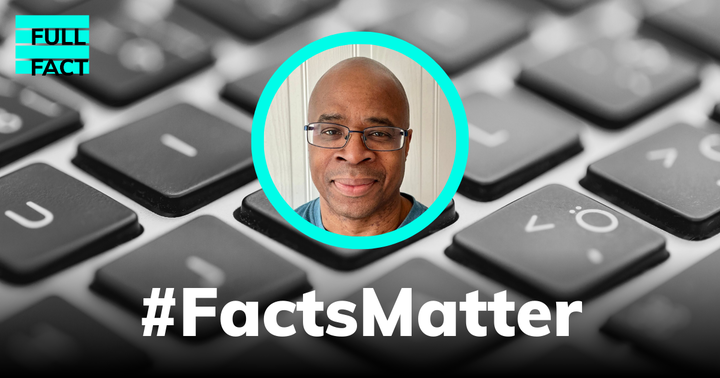From true crime author to fact checking PMQs: Why I became a fact checker

I’m a member of Full Fact’s politics team, so most of my work revolves around fact checking statements, speeches and claims made by politicians of all parties. This means monitoring newspapers, broadcast channels, social media and, of course, Parliament itself, especially for high-profile events such as Prime Minister’s Questions or the recent Spring Statement.
Prior to Full Fact I worked in more traditional print journalism, including a stint as news editor of Time Out and later crime correspondent at The Observer. I left there to go freelance and write a number of true crime books including Gangs, Outlaws and Reefer Men.
Join 72,953 people who trust us to check the facts
Sign up to get weekly updates on politics, immigration, health and more.
Subscribe to weekly email newsletters from Full Fact for updates on politics, immigration, health and more. Our fact checks are free to read but not to produce, so you will also get occasional emails about fundraising and other ways you can help. You can unsubscribe at any time. For more information about how we use your data see our Privacy Policy.
During the pandemic I switched to writing about policing, but quickly found I wasn’t getting the same level of job satisfaction.
I had an epiphany after being asked to give a talk about my campaigning and investigative work at Time Out, and realised that what I missed most was doing work that truly mattered and had a direct impact on people’s day-to-day lives.
The day after the talk, I saw the ad for a position at Full Fact.
I was very aware of debunking and fact checking websites such as Snopes, as I’d been increasingly directing friends to them after seeing all sorts of weird and wonderful claims popping up on their social media feeds.
I was less aware of the same kind of work being done in the UK, but once I started looking into it, a huge part of the appeal was that Full Fact was just one part of an international network of fact checkers. I was especially impressed by the resilience of those doing this work in far more challenging political environments than those we have here.
I’m fast approaching my third anniversary of joining Full Fact and the more time that passes, the more I see just how truly important our work is. We face—and will continue to face—new generations increasingly obtaining their news and information through social media rather than more traditional platforms. The UK riots of last summer are just one example of what can happen when misinformation is given the opportunity to spread like wildfire.
All this makes being a fact checker equal parts fascinating and frustrating. I’m passionate about helping to hold those who run the country—or hope to do so in the future—to account. At the same time, it’s sometimes disheartening to see how many—politicians included—are willing to share videos, quotes and claims that even they themselves probably know to be false.
The most satisfying part of the job is when politicians correct the errors they have made or others take down posts we have shown to be false. We are grateful in both instances. The more this happens, the easier it is to build trust in our democratic processes and wider information environment.
This article is part of the #FactsMatter campaign, which is highlighting the work we do at Full Fact and why we believe it matters. Over the course of the campaign we’ll be talking about how we check facts, the challenges we face in getting to the heart of evidence and the difference we can make when we do so.
We’re asking people to share what we publish, sign up to our newsletter and tell the world why #FactsMatter more than ever. Find out more about the campaign and how you can support it here.